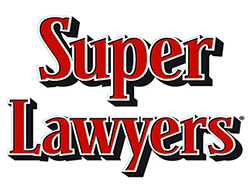The primary goal of taking a deposition is to obtain information. You want to find what the witness knows, allow them to speak under oath, and preserve their testimony. That can be a difficult task if you encounter a witness who is reserved or is reluctant to answer questions. Both first time and experienced deponents can present difficulties for attorneys questioning them. Below are some strategies to consider if you find yourself questioning a witness who is not eager to participate in the deposition.
First Time Deponent
A witness may not be intentionally non-cooperative. An individual who has never given a deposition before may be nervous. Particularly, a witness who is unfamiliar with the legal system may be intimidated and have their guard up.
First, try to put the witness at ease. Explain the deposition process and its purpose. Go over the ground rules and emphasize that the witness may take a break during the deposition, and that they should ask for clarification in the event they do not understand a question. Using a disarming tone and starting with easier questions can aid in making the witness more comfortable.
If the witness’s answers are limited or short, the most effective way to elicit a helpful answer is to ask questions that will prompt a narrative. The easiest way to do this is by asking open ended questions. Using phrases like “explain in your own words” or “tell me what happened after that” will encourage the witness to elaborate, and likely provide an opportunity for follow-up questions based on what the witness just testified to.
Finally, if the witness is still reluctant to answer questions, you can explicitly say that you’re not trying to trick them, you just want to know the truthful answers to the questions you are asking.
Experienced Deponent
Some witnesses routinely give depositions due to their education and specialized training. They may have given hundreds of depositions before, perhaps even more than you have taken in your career. These deponents are very sophisticated and have extensive experience. They will be familiar with the rules governing depositions.
Sophisticated witnesses generally have a broader understanding of the theory of the case and their role in achieving the desired outcome. These witnesses may craft their answers strategically in consideration of that. An experienced deponent may try to avoid being pinned down by avoiding absolutes. They respond, “for the most part”, “pretty much all”, or “not necessarily”. At this point you exhaustion of the witness is required. Ask them to clarify what parts of your statement they don’t agree with.
The experienced and sophisticated witness will likely understand why you are asking the question, and the implication of their answer to that question. They will not agree with your conclusions, so you will have to build to the ultimate question by asking individual questions of fact. If the witness is being evasive, reiterate that they are there to answer your questions. If their answer bounces around your question, you can try expressing that you appreciate what they are saying, but that they did not answer your question.
If you find yourself deposing a reluctant witness, consider incorporating some of the strategies discussed above to aid in obtaining their testimony.
Originally posted on The Chicago Bar Association







